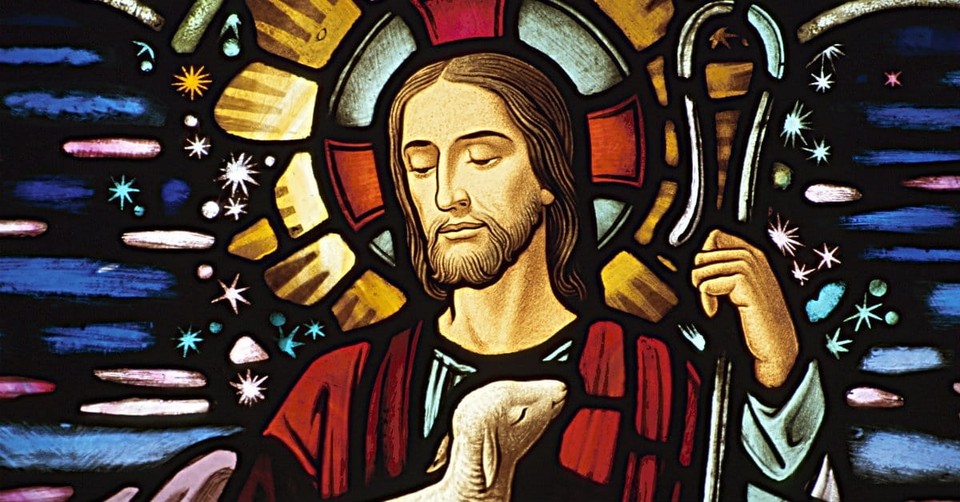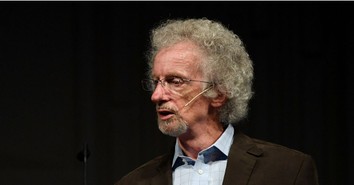Why There is a Need for Sacrifice

Immediately after Adam and Eve disobeyed God, they did something that may seem unusual:
Then the eyes of both of them were opened, and they knew that they were naked; and they sewed fig leaves together and made themselves loin coverings. (Gen. 3:7)
Sin produces guilt, and guilt generates the need for a covering. Our natural instinct to try to cover up our mistakes rather than admit them is inherited from Adam and Eve. They instinctively thought the way to cover their sin was to cover up their mistake with garments of their own making.
But when God came looking for them “in the cool of the day” (Gen. 3:8) they must have felt a sudden draft as they realized how inadequate their self-manufactured apparel was in the presence of a holy God. Only when they grasped their inability to cover their very real guilt before God were they in a position to receive God’s provision for their sin:
The LORD God made garments of skin for Adam and his wife, and clothed them. (Gen. 3:21)
This verse records the very first death in the Bible. The skin for Adam’s and Eve’s covering came from an animal God had created and then killed to make a sufficient covering for His children’s guilt. The first death in history was a sacrificial death. Something innocent died to cover the sins of someone guilty. And God was the One who provided the sacrificial animal.
Under Mosaic law, there were numerous and unending offerings and sacrifices God commanded as a perpetual reminder of the people’s sins. The climactic offering for the sins of Israel as a whole occurred on the Day of Atonement, described in Leviticus 16.
Once a year, the Jewish high priest would enter into the most sacred place in the temple, the Holy of Holies, where God was thought to dwell. The Holy of Holies contained the ark of the covenant, a box that among other things contained the Ten Commandments given to Moses. On top of the box was a gold lid called the mercy seat. On each end of the box was the representation of a special kind of angel—a cherub associated with guarding the holiness of God.
The picture was clear. God, looking down at the ark of the covenant, saw His law being violated by His own people day after day. But once a year, the high priest—after offering a bull as a sacrifice for his own sin—would enter into the Holy of Holies and sprinkle the blood of a goat on the mercy seat, symbolically covering over (or atoning for) the sins of the people.
Thus, when God looked down at the ark, He no longer saw His law, which had been transgressed, but the blood of an animal covering the sins of the people. But who created the required sin offering? God reminded the Israelites that He was the One who created the animal they offered on the sacrificial altar:
For the life of the flesh is in the blood, and I have given it to you on the altar to make atonement for your souls; for it is the blood by reason of the life that makes atonement. (Lev. 17:11)
Once again we see the picture of something innocent dying for those who are guilty.
One more example. In Genesis 22 we find the remarkable account of God commanding his servant Abraham to take his son Isaac to Mount Moriah and offer him has a burnt sacrifice. As Abraham raised his knife to plunge it into the heart of his beloved son, the Lord stopped him and instead provided a ram as a substitute for the sacrifice He had required. Moved with gratitude for what God had done, Abraham named the place Yahweh Yir’eh (meaning “The Lord Will Provide”).
Nearly two thousand years later, in that same group of hills known as the region of Moriah, God would provide the ultimate sacrifice for the sins of mankind. It was in that same area many scholars believe that Jesus Christ, “the Lamb of God who takes away the sin of the world” (John 1:29), was crucified. Someone innocent died as a sacrifice for those of us who are guilty.
Every animal offered in the Old Testament sacrifices was required to be “without blemish.” But these animals were simply an object lesson pointing to the ultimate sacrifice, Jesus Christ, whom God Himself would provide to atone for the sins of the world. Like the animal sacrifices, Jesus Christ was perfect. But that’s where the similarity stops.
The Old Testament sacrifices had to be offered continually. Christ was offered once. The Old Testament sacrifices were made by sinful priests who had to atone for their own sins. Christ was the perfect High Priest who presented Himself as the sacrifice. The Old Testament sacrifices provided temporary reconciliation with God. Christ’s sacrifice offered eternal redemption for those who believe. The writer of Hebrews illustrates the contrast between the Old Testament sacrificial system and the sacrifice of Christ this way:
But when Christ appeared as a high priest of the good things to come, He entered through the greater and more perfect tabernacle, not made with hands, that is to say, not of this creation; and not through the blood of goats and calves, but through His own blood, He entered the holy place once for all, having obtained eternal redemption. (Heb. 9:11–12)
My pastor, when I was growing up, used to say, “Your reaction to reading the book of Leviticus is a measure of your spirituality.” If that’s true, then I flunk the spirituality test! All of the specific instructions regarding offerings and sacrifices seem tedious to read. But I suppose that one “spiritual” response I have when reading Leviticus is gratitude to God for not requiring such complicated and continual rituals today.
The Old Testament sacrificial system was designed as a regular reminder of the very real problem of sin in each of us that must be atoned for. The fact that those sacrifices were never completed but had to be offered year after year created a longing for the once-for-all sin offering that only God Himself could make.
[Editor’s Note: This excerpt is taken from Not All Roads Lead to Heaven by Dr. Robert Jeffress, © 2016 by Dr. Robert Jeffress and Baker Books, a division of Baker Publishing Group. Used with permission.]
Dr. Robert Jeffress is senior pastor of the 12,000-member First Baptist Church in Dallas, Texas, and is a Fox News contributor. His daily radio program, Pathway to Victory, is heard on more than 800 stations nationwide, and his weekly television program is seen on thousands of cable systems and stations in the US and in nearly 200 countries around the world. Known for his bold, biblical stands on cultural issues, Jeffress has been interviewed on more than 2,000 radio and TV programs, including Good Morning America, CBS This Morning, Fox & Friends, MSNBC, CNN, Real Time with Bill Maher, Hardball with Chris Matthews, and The O’Reilly Factor.
Publication date: February 17, 2016
Originally published February 17, 2016.







